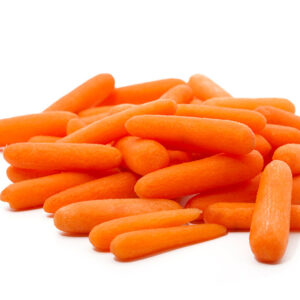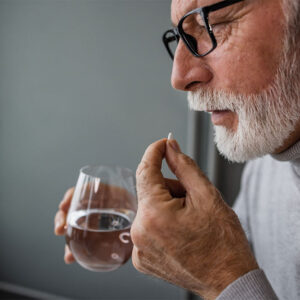
Colon Cancer? You MUST Read This
Colon cancer is the third leading cause of cancer death among men and women.
But it doesn’t have to be.
If you get a routine colon cancer screening, you can catch polyps and have them removed before they have a chance to become cancerous.
And for the estimated 100,000 cases of colorectal cancer that will be diagnosed this year, there’s good news.
Researchers have identified a natural substance that can help delay the progression of this deadly disease.
This clinical trial was called the SUNSHINE trial and for good reason.
Researchers wanted to see if adding high doses of vitamin D – the hormone your body makes from direct sunlight – to standard chemotherapy could improve the outcome in colorectal cancer patients.
The test included 139 patients with untreated metastatic colorectal cancer (meaning it had already spread to other parts of the body). Half took high-dose vitamin D (8,000 IU per day) for 14 days, and then a lower dose of 4,000 IU/day for the rest of the time.
The second group took a low dose of 400 IU of vitamin D per day for the entire trial period.
The patients also received standard chemotherapy.
Ultimately, the group taking the higher dose of vitamin D experienced a 13-month delay of disease progression, while the lower dose group experienced an 11-month delay.
As an added benefit, at the nearly two-year mark, the high-dose group was still less likely to experience disease progression – or even death.
I would like to have seen a third group that only received the chemo (and no vitamin D) to see what kind of difference the vitamin D made compared to standard therapy alone, but I’m still happy to see positive results with one of my favorite nutrients.
Typically, I would recommend getting most of your vitamin D from sunshine, but if you’d like to try using vitamin D to help combat your colorectal cancer, I’d advise following the same guidelines outlined in the study.
If it’s possible to prevent the disease from progressing from simply adding vitamin D to your standard treatment – something that’s safe, natural, and inexpensive – why not give it a try?
Given the high death rates from this type of cancer, every little bit counts.
Written By Dr. Richard Gerhauser, M.D.
For years he’s been the trusted doctor for celebrities, world-class athletes, and countless seniors looking to reclaim their health.
And now…for the first time ever… he’s making his medical breakthroughs available to readers all across America.
Dr. Richard Gerhauser, M.D. is one of the most pioneering and innovative minds in medicine today – and he delivers cutting-edge cures each month through his Natural Health Response newsletter.
Natural Health Response readers get full access to Dr. Gerhauser’s protocols for chronic pain… heart disease… diabetes… Alzheimer’s… and even cancer. These are the very same treatments Dr. Gerhauser recommends to his own patients at his practice in Tucson, Arizona.
In addition to being a board-certified medical doctor, Dr. Gerhauser has earned two master’s degrees and has served as a clinical professor at the University of Arizona.
And as a physician at the world-famous Canyon Ranch, Dr. Gerhauser treated celebrities from around the world who paid dearly for the type of next-generation health information he provides Natural Health Response readers each month.
View More Free Articles
Mother Nature's Bone-Building Secret REVEALED
Mainstream medicine has peddled the same old song and dance about osteoporosis for years. Pop some calcium pills… do some jumping jacks… and cross your fingers that your bones don’t crumble like a stale cookie. But what if I told you Mother Nature has been hiding a bone-building secret right under our noses? And we […]
The INCREDIBLE Payoff for Delaying Diabetes
If you don’t know where your blood sugar levels stand, it’s time to get them checked. It’s estimated that one in three adults has prediabetes, yet 80 percent of these folks have NO IDEA they’re in this category. That’s a BIG problem because most people will develop type 2 diabetes within just five years of […]
The Biggest Dementia Risk Factor REVEALED
I’m sure you’re familiar with the Skeleton Dance song… “The foot bone is connected to the leg bone. The leg bone is connected to the knee bone…” It’s easy to think of our bones being linked because we can physically see them. What’s less obvious is that everything else about your health is JUST as […]
It's NEVER Too Late to Kick This Dangerous Habit
You’ve heard it a million times before: “Smoking is bad for you.” If you’re still lighting up, I bet you remember a time when smoking wasn’t just accepted—it was downright fashionable. Remember when you could smoke in restaurants, on airplanes, and even in hospitals? Heck, movie stars even made it look cool and sophisticated. Well, […]
The TRUTH About ED No One's Talking About
It’s a subject most men would rather sweep under the rug… erectile dysfunction (ED). But you’re not alone if you’re having trouble in the bedroom. In fact, ED affects up to 30 million men in the U.S. alone. However, popping a little blue pill isn’t the answer. ED drugs are often just slapping a Band-Aid […]
Don’t Let Muscle Loss RUIN Your Golden Years
For older women, muscle mass can take a nosedive after menopause. This means more than trouble carrying in the groceries. Over time, the decline in muscle mass can lead to mobility problems, balance problems, falls, and ultimately a loss of independence. Staying active is a critical piece of the puzzle. But now, researchers have discovered […]
The Bad Habit Causing Lupus
All autoimmune diseases are on the rise—but lupus is one of the worst. When the condition strikes, your immune system starts to attack healthy tissues. Lupus cases have increased by 60 percent in women and have increased six-fold in men over the past four decades. What’s driving this dramatic increase? Well, we might have found […]
SHOCKING Missing Piece of the Diabetes Puzzle Discovered
I’ve been saying for years that there’s MORE to type 2 diabetes than your weight—or even your diet. Sure, they play their part. But unless you’re adding in THIS missing piece of the puzzle, you could be increasing your risk of type 2 diabetes despite your best efforts to avoid it. And you’ll never guess […]
Ditch the Chips and DEFY Aging
Sometimes, you just want something to crunch on. The craving can send even the most health-conscious among us heading straight to the snack aisle. But before you reach for the potato chips—which can contain all kinds of harmful ingredients—I have a better idea. Try THIS crunchy, healthy snack instead of loading up ingredients that can […]
Is Aspirin DEADLY? (Get the Truth Here)
Old habits die hard… especially when we’ve been led to believe they’re good ones. We were told for years that taking an aspirin a day would lower the risk of heart attack and stroke. But for many, those were empty promises that came with a LOT of risk… and LITTLE reward. That’s why, if you’re […]










